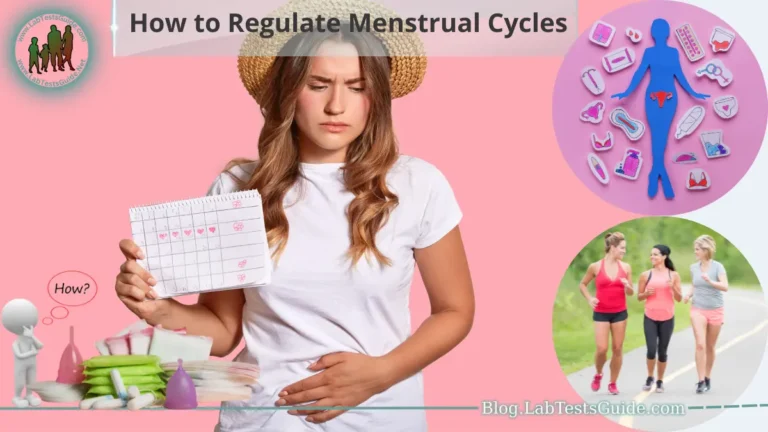Hormonal imbalances can have a significant impact on a girl’s physical and emotional well-being. Hormones play a crucial role in regulating various bodily functions, including growth, menstruation, mood, and fertility. When hormones are out of balance, it can lead to a range of symptoms and health concerns.

This guide aims to provide an overview of managing hormonal imbalances as a girl. It will cover essential information on understanding hormonal imbalances, recognizing the signs and symptoms, seeking medical help, making lifestyle changes, exploring natural remedies and supplements, considering prescription medications and therapies, and managing specific hormonal conditions. Additionally, it will highlight the importance of emotional support and self-care in dealing with hormonal imbalances.
It is important to remember that each individual’s hormonal balance is unique, and what works for one person may not work for another. Consulting with a healthcare professional is crucial for accurate diagnosis, personalized treatment plans, and monitoring progress throughout the journey of managing hormonal imbalances. By taking proactive steps and adopting a holistic approach, girls can find ways to restore hormonal balance and improve their overall quality of life.
Understanding Hormonal Imbalances:
Hormones and Their Functions:
Hormones are chemical messengers produced by the endocrine glands in the body. They play a vital role in regulating numerous bodily processes, including growth and development, metabolism, reproduction, mood, and sleep. Some of the key hormones involved in female reproductive health include estrogen, progesterone, follicle-stimulating hormone (FSH), luteinizing hormone (LH), and thyroid hormones.
- Estrogen: Estrogen is responsible for the development of female sexual characteristics, regulation of the menstrual cycle, and maintenance of bone health.
- Progesterone: Progesterone prepares the uterus for pregnancy and supports the growth of the uterine lining. It is primarily active during the second half of the menstrual cycle.
- FSH and LH: FSH and LH are essential for the development and release of eggs from the ovaries and the production of estrogen and progesterone.
- Thyroid hormones: Thyroid hormones, including thyroxine (T4) and triiodothyronine (T3), regulate metabolism, energy production, and growth.
Common Causes of Hormonal Imbalances:
Hormonal imbalances in girls can occur due to various factors. Some common causes include.
- Puberty: The onset of puberty triggers significant hormonal changes in girls, which can sometimes lead to imbalances and irregularities.
- Menstrual Cycle: Hormonal fluctuations throughout the menstrual cycle can cause symptoms such as mood swings, bloating, and breast tenderness.
- Polycystic Ovary Syndrome (PCOS): PCOS is a hormonal disorder characterized by elevated androgen levels, irregular periods, and the formation of cysts on the ovaries.
- Hormonal contraceptives: Certain types of hormonal contraceptives, such as birth control pills, can affect hormone levels in the body.
- Stress: Chronic stress can disrupt the balance of hormones, particularly cortisol, which can impact other hormonal pathways.
- Thyroid disorders: Conditions such as hypothyroidism or hyperthyroidism can result in imbalances of thyroid hormones, affecting overall hormonal balance.
- Certain medical conditions: Certain medical conditions like endometriosis or ovarian cysts can cause hormonal imbalances in girls.
Understanding the causes and functions of hormones is crucial for recognizing and addressing hormonal imbalances effectively. If you suspect a hormonal imbalance, it is important to consult with a healthcare professional for an accurate diagnosis and appropriate treatment.
Recognizing the Signs and Symptoms:
Physical Symptoms:
Hormonal imbalances in girls can manifest through various physical symptoms. These may include.
- Irregular or absent menstrual periods
- Heavy or prolonged menstrual bleeding
- Severe menstrual cramps
- Acne breakouts
- Unexplained weight gain or weight loss
- Hair loss or excessive hair growth
- Fatigue or low energy levels
- Changes in appetite or food cravings
- Digestive issues such as bloating or constipation
- Breast tenderness or swelling
- Sleep disturbances
It’s important to note that experiencing one or more of these symptoms does not necessarily mean you have a hormonal imbalance. However, if you notice persistent or disruptive changes in your menstrual cycle or other physical symptoms, it may be worth discussing with a healthcare professional.
Emotional and Psychological Symptoms:
Hormonal imbalances can also have an impact on a girl’s emotional and psychological well-being. Some common emotional symptoms associated with hormonal imbalances include.
- Mood swings
- Irritability or anger
- Anxiety or nervousness
- Depression or feelings of sadness
- Changes in libido or sexual desire
- Poor concentration or difficulty focusing
- Memory problems
- Decreased motivation or interest in activities
- Sleep disturbances, such as insomnia or excessive sleepiness
- Decreased self-esteem or confidence
It’s important to remember that hormonal imbalances can affect each individual differently, and the range and severity of symptoms may vary. If you’re experiencing significant emotional or psychological changes that interfere with your daily life, it’s recommended to seek medical advice for proper evaluation and guidance.
By being aware of these signs and symptoms, you can better recognize if you might be dealing with a hormonal imbalance. Consulting with a healthcare professional is crucial for accurate diagnosis and to determine the most appropriate treatment options for your specific situation.
Seeking Medical Help:
Visiting a Healthcare Provider:
If you suspect a hormonal imbalance or have been experiencing persistent or disruptive symptoms, it is important to consult with a healthcare provider. This could be a primary care physician, gynecologist, endocrinologist, or any other healthcare professional specializing in hormonal health.
During your visit, be prepared to provide a detailed medical history, including information about your menstrual cycle, any changes in symptoms, and any other relevant health concerns. Your healthcare provider will likely ask questions to better understand your symptoms and may perform a physical examination.
Diagnostic Tests for Hormonal Imbalances:
To determine the presence of a hormonal imbalance and its underlying causes, your healthcare provider may recommend certain diagnostic tests. These tests may include.
- Blood tests: Hormone levels can be assessed through blood tests, which may include measurements of estrogen, progesterone, FSH, LH, thyroid hormones, and other relevant markers.
- Imaging tests: Depending on your symptoms, imaging tests such as ultrasounds or MRI scans may be used to examine the reproductive organs and detect any abnormalities.
- Other specialized tests: In certain cases, your healthcare provider may recommend additional tests specific to the suspected hormonal condition. For example, if polycystic ovary syndrome (PCOS) is suspected, tests such as a pelvic exam, transvaginal ultrasound, or hormone stimulation tests may be conducted.
Based on the results of these tests and a comprehensive evaluation, your healthcare provider will be able to diagnose the hormonal imbalance and develop a tailored treatment plan to address your specific needs.
Remember, seeking medical help is crucial for an accurate diagnosis and appropriate treatment. Your healthcare provider will guide you through the process and help you understand the best course of action for managing your hormonal imbalance.
Lifestyle Changes for Hormonal Balance:
Here are some important considerations.
Healthy Diet and Nutrition:
A nutritious diet can support hormonal balance. Consider the following dietary recommendations.
- Eat a variety of fruits, vegetables, whole grains, lean proteins, and healthy fats.
- Include foods rich in fiber to support digestion and regulate blood sugar levels.
- Consume adequate protein for hormone production and repair of body tissues.
- Limit processed foods, sugary snacks, and beverages high in added sugars.
- Stay hydrated by drinking plenty of water.
- Regular Exercise: Engaging in regular physical activity can help regulate hormone levels and manage stress. Aim for at least 150 minutes of moderate-intensity aerobic exercise per week, along with strength training exercises. Find activities you enjoy, such as brisk walking, cycling, dancing, or swimming.
- Adequate Sleep: Proper sleep is essential for hormonal balance. Aim for 7 to 9 hours of quality sleep each night. Establish a consistent sleep schedule, create a relaxing bedtime routine, and ensure a comfortable sleep environment.
- Stress Management Techniques: Chronic stress can disrupt hormone balance. Incorporate stress management techniques into your routine, such as deep breathing exercises, meditation, yoga, or engaging in hobbies and activities that help you relax and unwind. Prioritize self-care and take time for activities that bring you joy.
- Limiting Exposure to Hormone Disruptors: Certain chemicals found in everyday products can act as hormone disruptors and negatively affect hormonal balance. Take steps to reduce your exposure to these substances, such as.
- Choose organic or hormone-free food products when possible.
- Use natural and chemical-free personal care products.
- Avoid plastic containers and choose glass or BPA-free alternatives.
Be cautious with the use of household cleaning products and opt for natural alternatives.
By adopting a healthy lifestyle and making these changes, you can support your hormonal balance and overall well-being. However, it’s important to note that lifestyle changes alone may not be sufficient for all hormonal imbalances. It’s best to consult with a healthcare professional for personalized guidance and treatment options.
Natural Remedies and Supplements:
While lifestyle changes are important, some natural remedies and supplements may also help promote hormonal balance. However, it’s crucial to consult with a healthcare professional before starting any new supplements, as they can interact with medications or have unintended effects. Here are some natural remedies and supplements that may be considered:
Herbal Supplements:
Certain herbs have been traditionally used to support hormonal balance. Some commonly used herbs include.
- Vitex (Chasteberry): It may help regulate menstrual cycles and alleviate symptoms of PMS.
- Black cohosh: It is commonly used for menopausal symptoms, such as hot flashes and mood swings.
- Dong Quai: It is used in traditional Chinese medicine to support hormonal balance and menstrual health.
- Maca root: It may help balance hormone levels and improve energy levels and libido.
- Evening primrose oil: It contains essential fatty acids that may help alleviate PMS symptoms.
Always consult with a healthcare professional or herbalist before using herbal supplements, as they may not be suitable for everyone and can interact with medications.
Essential Oils:
Certain essential oils may have hormone-balancing properties. They can be used topically, inhaled, or diluted for massage. Some essential oils that are commonly used for hormonal imbalances include.
- Clary sage: It may help balance estrogen levels and alleviate menstrual discomfort.
- Lavender: It is known for its calming effects and may help with stress management.
- Geranium: It may support hormone regulation and improve mood.
- Peppermint: It may help alleviate symptoms of hormonal headaches and digestive issues.
Ensure to follow proper usage guidelines and consult with a qualified aromatherapist or healthcare professional when using essential oils.
Dietary Supplements:
Certain dietary supplements may support hormonal balance. However, it’s important to note that individual needs vary, and the effectiveness of supplements can vary as well. Some supplements that may be considered include.
- Omega-3 fatty acids: They have anti-inflammatory properties and may help support hormonal balance.
- Vitamin D: It plays a role in hormone regulation, and deficiency can impact hormonal health.
- Magnesium: It supports overall hormone production and may help alleviate PMS symptoms.
- B-complex vitamins: They are involved in hormone synthesis and may support hormone balance.
Again, consult with a healthcare professional to determine the appropriate dosage and suitability of dietary supplements for your specific needs.
Natural remedies and supplements can be supportive in managing hormonal imbalances, but they should not replace medical advice or prescribed treatments. It’s essential to work with a healthcare professional who can guide you in choosing the right options for your individual situation.
Prescription Medications and Therapies:
Here are some commonly used interventions.
- Hormone Replacement Therapy (HRT): Hormone replacement therapy involves the use of medications that contain hormones to supplement or replace the hormones that the body may not be producing adequately. It is commonly used for conditions such as menopause, where estrogen and progesterone levels decline. HRT can help alleviate menopausal symptoms, such as hot flashes, vaginal dryness, and mood swings. It is typically prescribed based on an individual’s specific needs and may involve different forms, such as pills, patches, creams, or vaginal rings.
- Birth Control Pills: Oral contraceptives, commonly known as birth control pills, contain synthetic hormones (estrogen and/or progestin) that regulate the menstrual cycle and prevent pregnancy. They can help manage hormonal imbalances by regulating hormone levels and reducing symptoms such as irregular periods, acne, and excessive hair growth. Birth control pills are available in various formulations, and the specific type and dosage will depend on individual needs and medical history.
Other Medications for Hormonal Imbalances:
In specific cases, healthcare providers may prescribe other medications to address underlying hormonal imbalances or manage related symptoms. For example.
- Anti-androgen medications: They may be prescribed for conditions like polycystic ovary syndrome (PCOS) to reduce androgen levels and manage symptoms like acne and excess hair growth.
- Thyroid medications: If a thyroid disorder is causing hormonal imbalances, medications to regulate thyroid hormone levels, such as levothyroxine, may be prescribed.
- Medications for specific hormonal conditions: Conditions like endometriosis or hormonal imbalances associated with certain medical conditions may require specialized medications tailored to the specific condition.
It’s important to follow the prescribed dosage and instructions for any medications, and to discuss any potential side effects or concerns with your healthcare provider.
Remember, prescription medications and therapies should only be used under the guidance of a healthcare professional, who will assess your specific situation and determine the most appropriate treatment plan for you. Regular follow-up appointments will be important to monitor progress and make any necessary adjustments to the treatment approach.
Managing Specific Hormonal Conditions:
In addition to general strategies for managing hormonal imbalances, specific hormonal conditions may require additional approaches and treatments. Here are a few examples.
Polycystic Ovary Syndrome (PCOS):
PCOS is a common hormonal disorder characterized by imbalanced hormone levels, insulin resistance, and the presence of cysts on the ovaries. Managing PCOS may involve a combination of the following.
- Lifestyle modifications: Weight management through a healthy diet and regular exercise can help improve insulin sensitivity and hormone balance.
- Medications: Birth control pills, anti-androgen medications, and insulin-sensitizing drugs may be prescribed to regulate hormones, manage symptoms, and improve fertility if desired.
- Fertility treatments: For women with PCOS struggling with infertility, assisted reproductive techniques such as ovulation induction or in vitro fertilization (IVF) may be recommended.
Premenstrual Syndrome (PMS):
PMS refers to a collection of physical and emotional symptoms that occur in the days leading up to menstruation. Managing PMS may involve the following.
- Lifestyle changes: Adopting a healthy lifestyle, including regular exercise, stress management, and a balanced diet, can help alleviate PMS symptoms.
- Medications: Over-the-counter pain relievers, such as nonsteroidal anti-inflammatory drugs (NSAIDs), may help with cramps and breast tenderness. In more severe cases, hormonal contraceptives or antidepressants may be prescribed.
- Alternative therapies: Some women find relief from PMS symptoms through complementary approaches like acupuncture, massage therapy, or cognitive-behavioral therapy (CBT).
Menopause:
Menopause is the natural cessation of menstrual periods and marks the end of a woman’s reproductive years. Managing menopause-related hormonal changes may involve the following.
- Hormone replacement therapy (HRT): HRT, typically estrogen and progesterone, can help alleviate menopausal symptoms such as hot flashes, vaginal dryness, and mood swings. The use of HRT should be discussed with a healthcare provider, taking into consideration individual risks and benefits.
- Lifestyle modifications: Similar to managing hormonal imbalances, adopting a healthy lifestyle, including a balanced diet, regular exercise, and stress management, can help manage menopausal symptoms.
- Non-hormonal medications: Certain medications, such as selective serotonin reuptake inhibitors (SSRIs) or selective norepinephrine reuptake inhibitors (SNRIs), may be prescribed to manage hot flashes and mood changes.
These are just a few examples of specific hormonal conditions. Each condition may have unique treatment options and management strategies, and it’s important to work closely with a healthcare professional who can guide you through the appropriate approach for your specific situation.
Remember, treatment plans may vary, and what works for one person may not work for another. Individualized care and regular communication with your healthcare provider are essential for effectively managing specific hormonal conditions.
Emotional Support and Self-Care:
Managing hormonal imbalances as a girl involves not only physical strategies but also emotional support and self-care. Here are some important considerations.
- Seek Emotional Support: Dealing with hormonal imbalances can be challenging, both physically and emotionally. It’s essential to seek emotional support from trusted friends, family members, or support groups. Sharing your experiences, concerns, and feelings with others who may be going through similar situations can provide a sense of understanding and validation.
- Practice Self-Care: Taking care of yourself is crucial during this time. Here are some self-care practices that can support your emotional well-being. Prioritize relaxation and stress reduction techniques, such as deep breathing exercises, meditation, or yoga. Engage in activities you enjoy, whether it’s reading, listening to music, spending time in nature, or pursuing hobbies. Get sufficient rest and quality sleep to rejuvenate your body and mind. Practice positive affirmations and self-compassion to counter negative thoughts and build self-esteem. Engage in creative outlets like writing, painting, or journaling to express yourself and process your emotions. Establish healthy boundaries and learn to say no when necessary to avoid overwhelming yourself.
Therapy or Counseling: If you find that your emotional well-being is significantly impacted by your hormonal imbalances, consider seeking professional help from a therapist or counselor. They can provide guidance, support, and coping strategies to help you navigate through any emotional challenges you may be facing.- Educate Yourself: Gaining knowledge about hormonal imbalances can empower you to better understand your condition and make informed decisions. Read reliable sources, books, or websites that provide accurate information about hormonal health. This knowledge can help you advocate for yourself and have meaningful conversations with your healthcare provider.
- Stay Positive and Patient: Managing hormonal imbalances can be a journey, and it’s important to stay positive and patient with yourself. Understand that finding the right treatment approach may take time, and there may be ups and downs along the way. Focus on progress, celebrate small victories, and remind yourself that you are taking steps towards better hormonal balance and overall well-being.
Remember, your emotional well-being matters just as much as your physical health. By seeking emotional support, practicing self-care, and prioritizing your mental well-being, you can better cope with the challenges of hormonal imbalances and maintain a positive outlook on your journey towards hormonal balance.
Conclusion:
In conclusion, managing hormonal imbalances as a girl involves a holistic approach that addresses both the physical and emotional aspects of well-being. Understanding hormonal imbalances, recognizing the signs and symptoms, and seeking medical help are crucial steps in the process. Implementing lifestyle changes, such as maintaining a healthy diet, regular exercise, and stress management, can contribute to hormonal balance.
Additionally, natural remedies and supplements may provide support, but it’s important to consult with a healthcare professional before incorporating them into your routine. Prescription medications and therapies, including hormone replacement therapy and specific medications for hormonal conditions, may be necessary under the guidance of a healthcare professional.
Emotional support and self-care are equally important in managing hormonal imbalances. Seek support from loved ones, build a supportive network, and consider therapy or counseling if needed. Prioritize self-care activities, practice relaxation techniques, and educate yourself about your condition. Stay positive and patient throughout the journey, celebrating small victories and focusing on overall progress.
Remember, each person’s experience with hormonal imbalances is unique, and the management approach may vary. It’s important to work closely with a healthcare professional who can provide personalized guidance and monitor your progress. By taking a comprehensive approach to managing hormonal imbalances, you can improve your overall well-being and lead a healthier and more balanced life.






